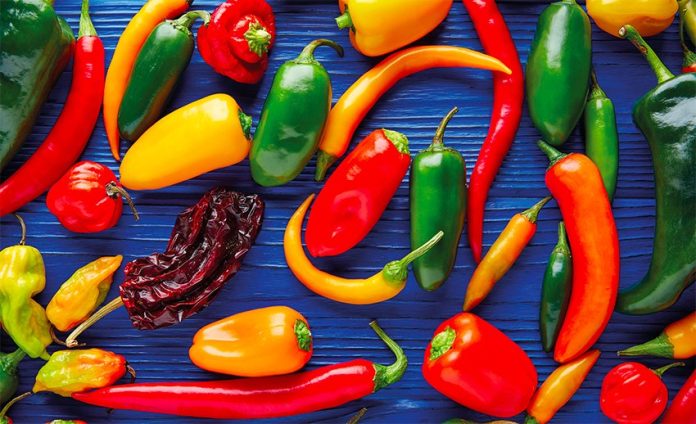It might sound counterintuitive, but the spiciest and hottest chiles will give consumers the greatest sense of well-being.
A gastroenterologist at the IMSS health service says eating chiles can produce a feeling of euphoria very similar to that produced by opioids.
Héctor Gómez Jaramillo explained that eating chiles stimulates the release of endorphins, a group of hormones secreted within the brain and nervous system that inhibit the communication of pain signals.
He said consumption of chiles also protects against cholesterol and is effective against rheumatism due to their capsaicin content.
Capsaicin is one of the substances that make chiles hot and is also an effective analgesic.
Heart disease and strokes worsened by elevated heart pressure can also be prevented by chiles, a low-calorie food that stimulates metabolism.
Gómez did point out the drawbacks of eating a lot of chile peppers, which include damage to organs such as the rectum and the colon and irritation of the mucous membranes, diarrhea, bloating and pain.
So eat chiles and be happy, but only in moderation.
Source: El Financiero (sp)
